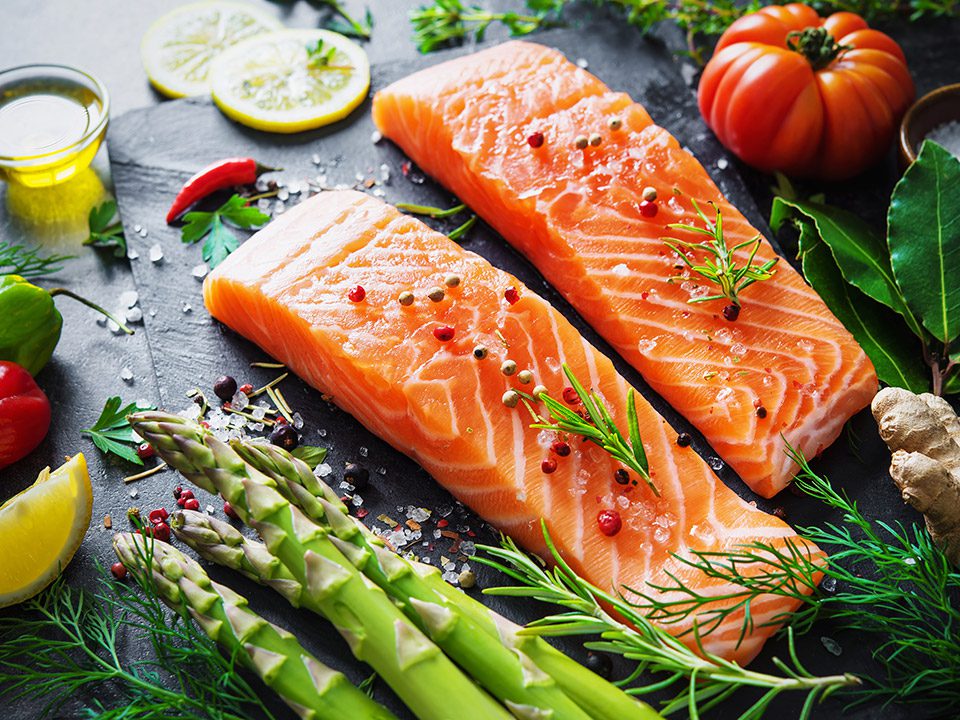Vitamin D is an essential nutrient that plays a crucial role in maintaining our overall health. It helps in the absorption of calcium and phosphorus, which are essential for strong bones and teeth. Vitamin D also supports our immune system, helps regulate insulin levels, and promotes healthy cell growth. While our body can produce vitamin D when exposed to sunlight, it is also important to include foods rich in this nutrient in our diet. In this blog post, we will discuss the best foods for a high-vitamin D diet.
1. Fatty Fish
Fatty fish like salmon, tuna, and mackerel are excellent sources of vitamin D. A 3-ounce serving of cooked salmon can provide up to 447 IU of vitamin D, which is more than the recommended daily intake for most adults. These fish also contain omega-3 fatty acids, which are beneficial for heart health. Including fatty fish in your diet at least twice a week can help you meet your vitamin D requirements.
2. Egg Yolks
Egg yolks are another great source of vitamin D. One large egg yolk can provide around 41 IU of vitamin D. While most of the nutrients in eggs are found in the whites, the yolks contain most of the vitamin D. However, it is important to note that the vitamin D content in eggs can vary depending on the diet of the hens. Eggs from hens that are fed a diet high in vitamin D will have higher levels of this nutrient.
3. Fortified Foods
Many foods are fortified with vitamin D, making it easier to meet our daily requirements. These include milk, orange juice, cereal, and yogurt. A cup of fortified milk can provide around 115–130 IU of vitamin D, while a cup of fortified orange juice can provide up to 137 IU. However, it is important to check the labels and choose products that are fortified with vitamin D2 or D3, as these are the most effective forms of this nutrient.
4. Mushrooms
Mushrooms are the only plant-based source of vitamin D. They contain a compound called ergosterol, which is converted into vitamin D when exposed to sunlight. While all mushrooms contain some amount of vitamin D, those that are exposed to UV light during growth have significantly higher levels. Some of the best sources of vitamin D in mushrooms include shiitake, portobello, and maitake mushrooms.
5. Cod Liver Oil
Cod liver oil is a supplement that is rich in vitamin D, as well as omega-3 fatty acids and vitamin A. Just one tablespoon of cod liver oil can provide up to 1,360 IU of vitamin D, which is more than double the recommended daily intake. However, it is important to consult with a healthcare professional before adding cod liver oil to your diet, as it can interact with certain medications.
6. Beef Liver
Beef liver is a nutrient-dense food that is rich in various vitamins and minerals, including vitamin D. A 3-ounce serving of beef liver can provide around 42 IU of vitamin D, as well as other important nutrients like iron, zinc, and vitamin B12. However, it is important to consume beef liver in moderation, as it is also high in cholesterol.
7. Tofu
Tofu is a popular plant-based protein source that is also a good source of vitamin D. A 3-ounce serving of tofu can provide around 80 IU of vitamin D. It is also a versatile ingredient that can be incorporated into various dishes, making it an easy addition to a high-vitamin D diet for vegetarians and vegans.
8. Sunflower Seeds
Sunflower seeds are a tasty and nutritious snack that is also a good source of vitamin D. A 1-ounce serving of sunflower seeds can provide around 41 IU of vitamin D, as well as other important nutrients like magnesium and vitamin E. They can be enjoyed on their own or added to salads, smoothies, or oatmeal for an extra boost of vitamin D.
9. Sardines
Sardines are another type of fatty fish that is rich in vitamin D. A 3-ounce serving of canned sardines can provide around 177 IU of vitamin D, making it an excellent choice for those looking to increase their intake of this nutrient. They are also a good source of omega-3 fatty acids and calcium, making them a great addition to a high-vitamin D diet.
10. Cheese
Cheese is a delicious and versatile food that is also a good source of vitamin D. A 1-ounce serving of cheddar cheese can provide around 12 IU of vitamin D, while the same amount of Swiss cheese can provide around 6 IU. While cheese should be consumed in moderation due to its high calorie and fat content, it can be a tasty way to add some vitamin D to your diet.
Conclusion
Vitamin D is an important nutrient that is essential for our overall health and well-being. Including foods rich in this nutrient in our diet can help us meet our daily requirements and reap the many benefits of vitamin D. Fatty fish, egg yolks, fortified foods, mushrooms, and cod liver oil are some of the best sources of vitamin D. Vegetarians and vegans can also get their dose of vitamin D from plant-based sources like tofu and sunflower seeds. So, make sure to include these foods in your diet to maintain healthy levels of vitamin D and support your overall health.


